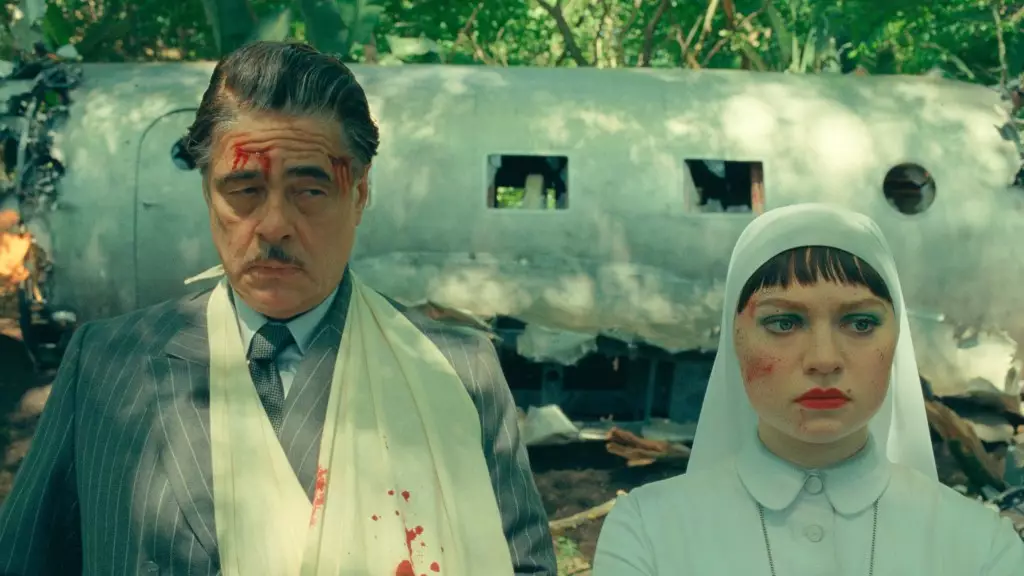In the world of cinema, the collaborative efforts of directors and actors often lead to whimsical stories both on and off-screen. Recently, Benicio del Toro, known for his remarkable performances and frequent collaborations with auteur Wes Anderson, had an encounter that could only be described as a comedy of errors during a flight from Boston to Los Angeles. Carrying a script from Anderson’s latest project, *The Phoenician Scheme*, del Toro unwittingly stumbled into a situation that underscored both the absurdity and seriousness of airport security.
As the Oscar-winning actor recounted on *Late Night with Seth Meyers*, a routine TSA inspection turned into a tense moment laden with unintended hilarity. The situation escalated dramatically because the heading of the screenplay read like a thriller with ominous undertones: “Interior Airplane: Bomb,” “Interior Cockpit: Eject the Pilot,” and the chillingly simple “Crash.” One could easily see how these phrases would raise alarm bells among the meticulous TSA officials searching for potential threats. Perhaps no one could have imagined that a play intended for entertainment could trigger a full-blown security alert.
The Thin Line Between Art and Alarm
This incident reflects an interesting dichotomy between artistic expression and public safety. In an era where vigilance is paramount and fears are often heightened, a harmless screenplay can be misconstrued as a real hazard. Del Toro’s reaction showcases his understanding of this tension; he expressed appreciation for the TSA agent’s diligence while managing to maintain a sense of humor about the situation. “I give that guy a thumbs up because he was paying attention,” he said, acknowledging that while inconvenient, the action stemmed from a necessity to keep travelers safe.
Moreover, the exchange highlights a broader issue: how art and entertainment can sometimes collide with societal norms and anxieties. In a world that keeps a watchful eye for potential risks, creative expressions can inadvertently provoke alarm. It begs the question of how we can safeguard creativity while ensuring the general public’s safety. Should writers and filmmakers need to navigate the language of their scripts to avoid misinterpretation? Or should audiences and authorities be more attuned to the context in which narratives unfold?
Humor in a Serious World
This anecdote provides a much-needed dose of humor and relatability amidst the pervasive tension in travel security. It serves as a reminder that while protocols exist for good reason, humanity thrives on moments of laughter—even in serious situations. Del Toro’s light-hearted reflection on the TSA encounter, imagining how differently things could have unfolded had he not been recognized, brings a smile to an otherwise stressful experience.
With the entertainment industry constantly evolving, perhaps moments like these can serve as a wake-up call—not only to those in security roles but also to artists. Knowing how to dance around sensitivities without sacrificing authenticity paves the way for conversation and understanding. It emphasizes the importance of humor and light-heartedness, reminding us that while we live in a world of vigilant security measures, there’s still room for a good chuckle and a friendly reminder that creativity is, and should always be, a safe space.
